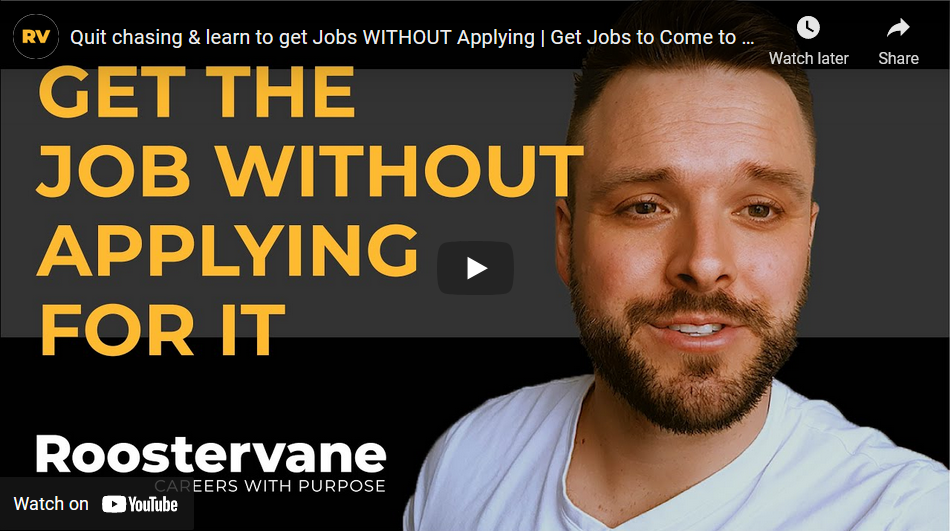So you’re asking yourself, “Is networking important?”
I’ve been hanging around the career space for a while, and there’s nothing so universal to career searchers as an intense hatred for networking.
I hear every objection under the sun:
I hate networking.
That’s not my style, I don’t like schmoozing.
Networking is gross.
I’m not a people person.
I’ve heard it all. And I get it. Networking is fundamentally at odds with the way many of us have been trained to think about ourselves.
Don’t talk to strangers.
Don’t bother people.
You should get a job because you’re the right person, not because you know somebody.
Guess what? Following those crappy and sad-old maxims is a sure-fire path to not getting the career you want.
Nothing will change your career like networking. It completely transforms people’s work lives, yet so few people are willing to do it.
By the way, I’m not saying that networking is RIGHT or WRONG. This is not a moral discussion around whether getting jobs should or shouldn’t involve networking. The fact is, it’s everywhere whether we like it or not.
Jobs will come to you
Let’s start here first.
A few months ago, a friend of mine got offered a job. It was a good job, with a private company, likely paying $100,000 a year.
How did she get considered for such a great job?
She didn’t apply.
She didn’t give them a resume to keep on file.
She didn’t have an interview.
In fact, she didn’t even know the job existed. She had no idea that the company was hiring.
Oh, and one more thing.
She got offered the job by a text message. TEXT MESSAGE!
This happened because she had a strong network. She was a known commodity, had a reputation for great work, and someone at the company knew she would be perfect for the role. (And no, they weren’t related to her.)
She was offered it outright.
This is what happens when you have a network. It’s really hard to explain to people how important networking is, but it’s everything.
I often encounter students who have a degree they worked hard for, but no work experience. I tell them one thing. You need to find someone who will take a chance on you. In order to take a chance on you, they need to know who you are. They need to look into your eyes and trust you, not see you on paper. That’s what launches careers.
Your employers are scared of you
I run a little company, and can I tell you something? There’s nothing scarier than hiring people.
You’re terrified of your potential employers?
Well, let me tell you something. Your potential employers are terrified of you.
They ask themselves:
Will this person be a nightmare to work with?
Can they work without constant supervision?
Can I trust them to get the work done?
Are they the best use of my hard-earned cash?
The employer’s aim is never to give you a job. It’s to get something done and get it done well. They’re hiring someone to make their life easier. So, make their life easier and become a known commodity so they can hire you. Build a reputation in your network, and people will look to you for expertise.
We all need human connection
“I’m not good at networking!”
I hear this objection all the time.
The main problem with this objection is that it’s based on a faulty understanding of what networking actually is.
Most people imagine that guy, yeah it’s usually a guy, who walks into a room, slicked hair, a little too friendly, handing out business cards to everyone.
Is that what good networking is?
Actually, I don’t think so. And, even if it were, very few humans do that well. Most people who do it just turn people off.
I usually drop the card in the garbage as soon as I can because I’m so disgusted.
What is networking, fundamentally? It’s creating human connection.
Have you ever gone to a party and really formed a memorable connection with one person? Wasn’t it a much better experience than going to a party and shaking 15 people’s hands and talking about the weather?
We all crave real connection. And once you have that genuine connection, it can last a long time.
And humans don’t connect on polished corporate speak. If you’ve ever had these moments, I’m guessing you weren’t using words like “synergy” or “engaging stakeholder.” You just talked to someone. Maybe you were even vulnerable, like Brené Brown advocates for.
These are the moments that build our networks. They are human and they are powerful. And when that CEO is hiring for a managerial position, they’re not going to ask, “Who was that person who knew all the corporate buzzwords?” They’re going to look for that human being they connected with.
If more people defined networking as making a human connection, they wouldn’t be so bothered by it.
Handing out a business card isn’t usually a human connection, unless it comes at the end of a conversation.
So talk about work. But also talk about family, friends, hobbies, pets, hopes, dreams, and all the other things that make us human.
What networking is not
Networking is not usually friendship
This takes some getting used to.
In reality, you will probably not be “friends” with most of your networking contacts. You’ll probably have a great conversation and then check in every six months at the most.
This seems strange if you’re not used to it. Network contacts become more like work friends, you probably chat when you see them, but you’re not inviting them over for a BBQ.
Schmoozing
I don’t really know how to define schmoozing, but most of us have an idea of what it is.
Schmoozing implies fakeness, using people, being slick. Most of us imagine a used car salesman with a huge plastic smile and a bad suit.
If you’re trying to schmooze, you’re doing it wrong. Just talk to people like a normal human being.
Dating
This needs to be said, especially if you’re networking with the opposite gender.
There are some societal rules of networking that people sort of implicitly understand. Don’t try to turn a networking meeting into a date (I’m looking at you men). Don’t send creepy messages. For the love of God, if you’re reaching out to someone on LinkedIn, do not comment on how good they look.
If you are doing this, you are not networking. And, deservedly, you will probably be ignored, told off, or reported.
Unfortunately, networking can occasionally come with creepy and unwanted advances, especially for women.
Be sure to network in a way that makes you comfortable. If you’re meeting, meet in a public place. Feel free to suggest a call or Zoom conversation if that makes you more comfortable. While there may be exceptions, meeting for a glass of wine in the evening is not the norm for networking.
Most often, in-person meetings are for a daytime coffee or a happy-hour beer. Whatever your gender identity, don’t be afraid to ask for whatever makes you comfortable.
Where to start
Build your image
This seems like a strange thing to say first, but networking flows from trust. If you are trying to connect with someone, make sure they can find you online and that you have a professional-looking LinkedIn profile (instructions here on how to do that).
Make sure there’s a picture there! I don’t know how many times people have tried to connect with me on LinkedIn with no picture. It’s not going to happen.
I’ve got all my stuff online for people to see. My real name, my face, my work history. It makes me feel a little uncomfortable sometimes to have so much of myself on the internet.
So when I see that someone else took the time to create a LinkedIn profile and fill it out, it makes me feel better. I want to see a picture, not because I care what they look like, but because that signals to me that there is indeed a real person here that wants to connect with me and it’s not a Russian bot (yeah, yeah, I know people can fake pictures. But so far everyone I’ve ever met has looked mostly like their online picture.)
Start with who you know
The average person already has a “network” of sorts. Each one of your friends and family know people who might be useful for you to talk to.
Take stock of who those people are. If any are in interesting careers TALK TO THEM! Not only will you learn about their career, but they may also be able to connect you to other interesting people.
If you are a student, the most powerful networking opportunities may be through your school. You have professors who may know people outside of academia. There is likely a career center that may connect you to interesting people or alumni.
If you’re in an advanced degree and are comfortable having the conversation, talk to your supervisor about it. See if they will introduce you to some people outside of the university doing interesting things: alumni, their peers in non-academic research, etc. (I’ve discovered that not all professors are willing to have this conversation. If your direct supervisor won’t, don’t be afraid to chat with others you know who may help.)
Message people
This is the scary part.
Grit your teeth and take a deep breath.
One of the best ways to build the network you want is to message people.
The app Shapr is one I’ve recommended before, and I do think it’s really great to meet people on.
But there’s nothing more effective than choosing the people who inspire you and sending them a message. This is how you build your network with people who interest you.
I have instructions for doing this and a whole bunch of other great tips on build your network in this post.
Conclusion
A good network is worth its weight in gold. It will have a real impact on your career and bottom line. I often meet students who are agonizing over every line of their resume.
Don’t do that.
I mean, do make your resume. But if you’re spending day after day dropping your resume into a career black hole, stop.
Try networking instead. It will change your life.
Read More:







